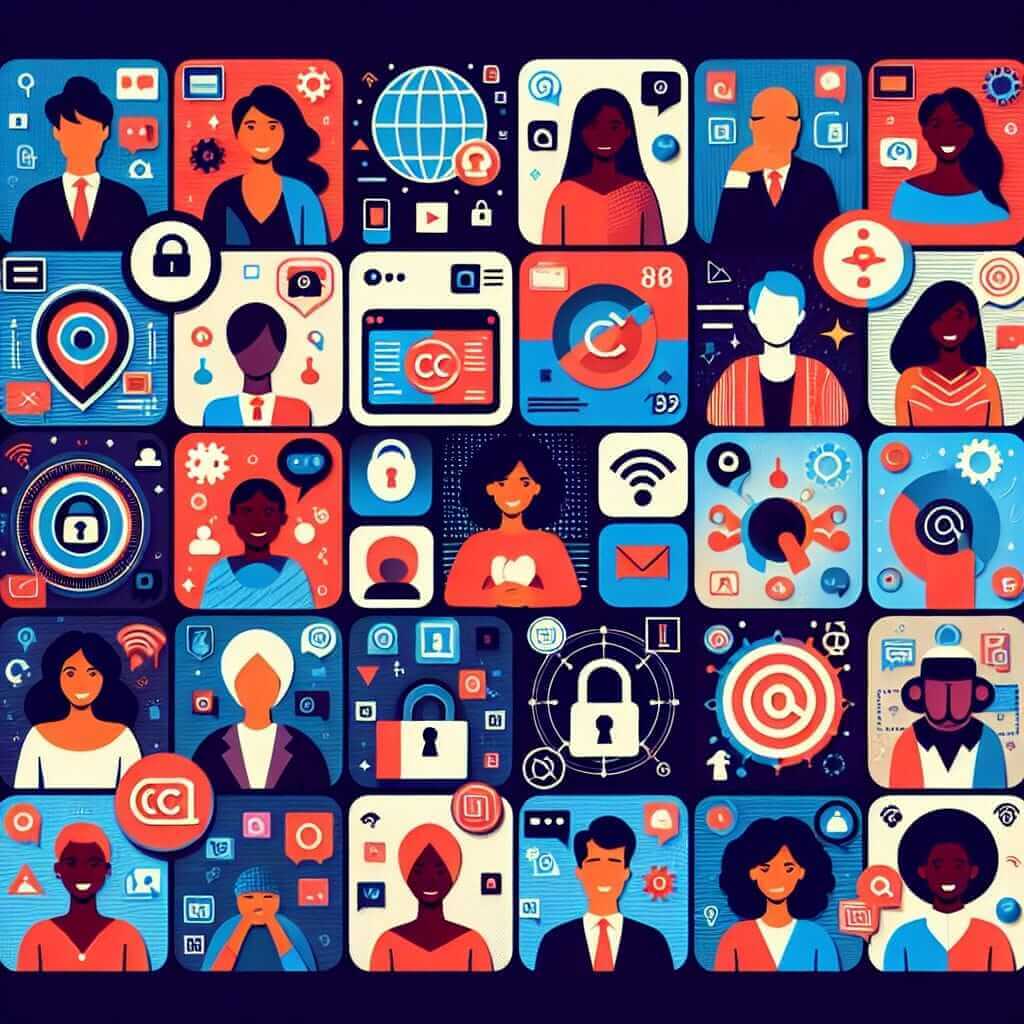The Reading section of the IELTS exam tests a candidate’s ability to understand detailed information presented in written English. This section includes a wide range of topics, from social issues to scientific discoveries, which are highly relevant to global discussions. One such topic is the impact of digital platforms on intellectual property rights, a subject that has become increasingly pertinent with the proliferation of online technologies.
Digital platforms have revolutionized how we share, access, and interact with content. Consequently, this has raised significant issues regarding intellectual property (IP) rights. The implications of digital platforms on IP have appeared in various IELTS reading passages and are likely to do so because of their contemporary relevance.
Main Content
Reading Passage: The Influence of Digital Platforms on Intellectual Property Rights
Passage
The advent of digital platforms has radically transformed how individuals and companies create, share, and consume content. Digital media, facilitated by platforms such as YouTube, Spotify, and various social media networks, have created unprecedented opportunities for content dissemination, but have also posed critical challenges to intellectual property rights.
Before the rise of digital platforms, creators of original content—whether music, books, software, or movies—could rely on copyright laws to protect their intellectual property. Copyright ensures that the creator (or owner) of such content has exclusive rights to its use and distribution. However, the digital age has made it easy to copy, share, and distribute content without proper authorization, rendering traditional copyright measures less effective.
One major issue is piracy. Websites and platforms have made it increasingly easy to distribute copyrighted material illegally. Despite various measures to curb piracy, such as digital rights management (DRM) technologies and stricter legal frameworks, unauthorized distribution persists. This not only leads to significant financial losses for original content creators but can also dilute the perceived value of creative works.
Moreover, the very nature of digital platforms facilitates rapid and wide-spread sharing of content, which complicates enforcement of intellectual property rights. Consider social media platforms where users can share images, videos, and text. While such platforms often include mechanisms to report violations, the sheer volume of content makes it nearly impossible to police effectively.
Compounding the problem is jurisdictional issues. Digital platforms often operate globally, but intellectual property laws can vary significantly from one country to another. This disparity complicates the enforcement of IP rights, as actions permissible in one jurisdiction might be illegal in another.
To address these challenges, there have been calls for international treaties that standardize intellectual property laws across countries. Additionally, some digital platforms have implemented more robust content management systems to detect and manage copyright infringements more efficiently. Technologies such as artificial intelligence and blockchain are also being explored as potential solutions to better protect intellectual property in the digital age.
However, the evolution of technology continually presents new challenges. The rise of new digital content formats, such as virtual and augmented reality, might further complicate the landscape of intellectual property rights.
Questions
Identifying Information (True/False/Not Given)
- Digital platforms have made it harder to enforce traditional copyright laws.
- Piracy leads to both financial losses and a decrease in the perceived value of creative works.
- Intellectual property laws are consistent across all countries.
Multiple Choice
-
What is one proposed solution to address the jurisdictional issues of intellectual property rights enforcement?
A. Reducing the production of digital platforms
B. International treaties to standardize intellectual property laws
C. Allowing different laws for different platforms
D. Allowing unauthorized distribution for non-commercial purposes -
Which of the following technologies is NOT mentioned as a potential solution for managing IP rights?
A. Digital Rights Management (DRM)
B. Artificial Intelligence
C. Blockchain
D. Quantum Computing
Answers
-
True – The passage states that the digital age has rendered traditional copyright measures less effective due to ease of copying and sharing.
-
True – The passage mentions significant financial losses and a dilution in the perceived value of creative works due to piracy.
-
False – The passage explicitly states that intellectual property laws differ significantly from one country to another.
-
B – The passage discusses international treaties as a solution to standardize intellectual property laws across countries.
-
D – The passage mentions DRM, AI, and blockchain, but not Quantum Computing.
Common Mistakes
- Misinterpreting the impact of digital platforms on traditional IP laws.
- Overlooking the global disparity in IP laws leading to jurisdictional challenges.
- Confusing specific technological solutions mentioned in the text.
Vocabulary
- Piracy (noun) /ˈpaɪrəsi/: The illegal copying and distribution of software.
- Jurisdiction (noun) /ˌdʒʊrɪsˈdɪkʃən/: The official power to make legal decisions and judgments.
- Enforcement (noun) /ɪnˈfɔrs mənt/: The act of compelling observance or compliance with a law, rule, or obligation.
- Artificial Intelligence (noun) /ˌɑrtɪˈfɪʃəl ɪnˈtɛlɪdʒəns/: The simulation of human intelligence processes by machines.
Grammar Points
- Passive Voice: Digital rights management (DRM) technologies and stricter legal frameworks have been implemented to curb piracy.
- Formula: [Subj.+ auxiliary + past participle] serves to emphasize the action rather than the doer.
Conclusion
Understanding the impact of digital platforms on intellectual property rights is crucial for IELTS Reading preparation. The blend of contemporary relevance and the intricate nature of the topic makes it a frequent subject in IELTS exams. Practicing reading passages like this can enhance your comprehension skills and prepare you for questions that test your ability to identify key information, make inferences, and understand the broader context. For more effective preparation, combine these practices with enriching your vocabulary and grasping complex grammatical structures.

Always remember, practice and consistent focus on understanding the text will go a long way in securing a high score in the IELTS Reading section.